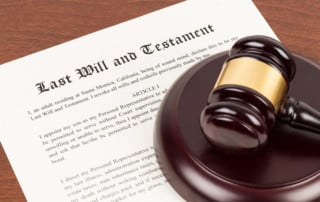Last Will & Testament – What Makes a Will Valid?
Movies, television, and books like to present wills in dramatic ways--handwritten notes, videos, deathbed utterances--but what actually makes a will & testament valid? The main difference between a will & testament is the "will" focuses on real property while the "testament" is meant for personal properties like household goods, monies or vehicles. The law varies






